Green-notebooks - Untitled
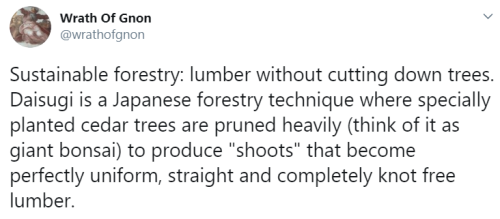
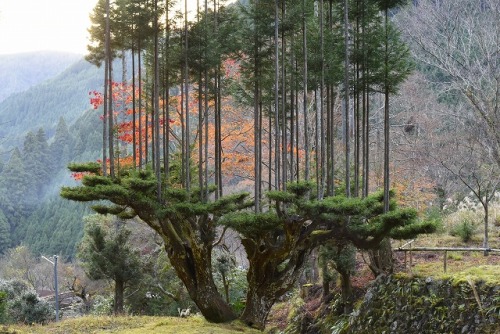
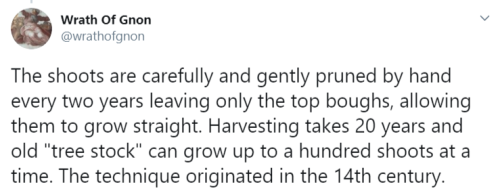

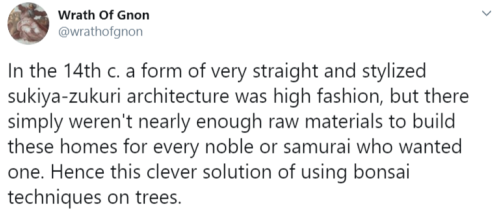
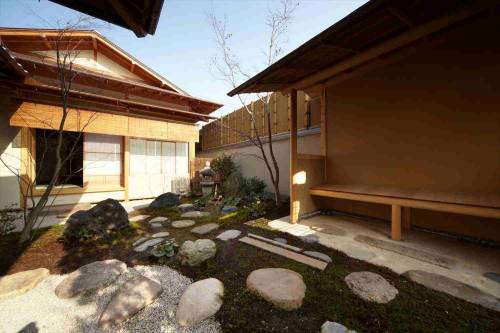


More Posts from Green-notebooks and Others

Jeanette Winterson
New 'e-dermis' brings sense of touch, pain to prosthetic hands
Amputees often experience the sensation of a “phantom limb” – a feeling that a missing body part is still there.

That sensory illusion is closer to becoming a reality thanks to a team of engineers at the Johns Hopkins University that has created an electronic skin. When layered on top of prosthetic hands, this e-dermis brings back a real sense of touch through the fingertips.
“After many years, I felt my hand, as if a hollow shell got filled with life again,” says the anonymous amputee who served as the team’s principal volunteer tester.
Keep reading
More on solarpunk education:
So I made a big post about cooperative, age-appropriate games as a solarpunk education method, but in my ideal solarpunk world that would only be one aspect of education. Here are some other education ideas bouncing around in my head. Like cooperative games, they all require a lot of time, knowledgeable teachers, and community investment, but I think they would lead to healthier, enthusiastic people, fully prepared to live well and be lifelong learners.
Food Science Education: Starting at a young age with simple gardening and cooking, stuff that young kids can get really excited about. As kids age, folding in the complete science of where food comes from, its relationship with the ecosystem, how to preserve it, and how to prepare it.The idea being that by the time you’re an adult you should have the tools to competently feed yourself even if you end up focusing on other things.
Relationship Education: An improvement on sex ed. Much of the same content, but expanded with more information for all genders and sexualities, and good, non-scare tactic science on the human body, reproduction, contraceptives, stds, and common communicable illnesses. Also, workshops on healthy relationship communication, self-care, meditation/introspection/self-knowledge, basic first aid, how to help friends in the midst of crisis or mental illness, how to recognize predatory/manipulative/abusive behaviors (in sexual situations and otherwise oh my god it’s so important, why aren’t we taught this early and often?), some basic childhood development stuff.
Artistic Expression & Upcycling: Art classes which would cover art theory and allow for a lot of self-expression, but would also teach young adults to make and repair their own clothing, use basic woodworking tools, work with ceramics, safely fiddle with metals and basic electronics, and other practical “specialty” skills necessary for a world with less waste.
Rotating Apprenticeships: Starting out as small group field trips for younger kids, and evolving into longer choice-based apprenticeships in areas of interest, maybe taking up one day per week for high school aged kids. The community members involved in this experience wouldn’t necessarily give lessons on their livelihood – for example a farmer with a deep knowledge of medieval history and geology could focus on one of those subjects if they chose. This would give adults in the community a chance to delve deeper into subjects they loved, and kids a chance to learn a subject from someone truly enthusiastic.
Questing/Journeyman years/other travel: I know there are plenty of posts on solarpunk travel, but in an educational context I imagine it as a continuation of rotating apprenticeships. This would be a time for young adults to visit people and places related to their areas of interest. It could be very specific (like meeting and working with 5 scientists on 5 continents while studying food sustainability) or a more general exploration (visiting some great museums, WOOFing, contributing to public art, and journaling about the experience while trying to decide what to do next).
Independent Project Salons: This would be a way to tie together celebration, community, and education. Informal salon settings would be a great place for young adults doing independent study or in the midst of travel to meet and talk about their experiences and ideas, and maybe show off their work. Possibly hosted by retired folks who could organize food and drink, introduce topics and guests, and add the benefit of their own experiences.
What other kinds of solarpunk educational programs do you love the idea of?


Prairies are some of the most endangered ecosystems in the world, with the tallgrass prairie being the most endangered. Only 1-4% of tallgrass prairie still exists. Prairies are critically important, not only for the unique biodiversity they possess, but for their effect on climate. The ability to store carbon is a valuable ecological service in today’s changing climate. Carbon, which is emitted both naturally and by human activities such as burning coal to create electricity, is a greenhouse gas that is increasing in the Earth’s atmosphere. Reports from the International Panel on Climate Change, a group of more than 2,000 climate scientists from around the world, agree that increased greenhouse gases are causing climate change, which is leading to sea level rise, higher temperatures, and altered rain patterns. Most of the prairie’s carbon sequestration happens below ground, where prairie roots can dig into the soil to depths up to 15 feet and more. Prairies can store much more carbon below ground than a forest can store above ground. In fact, the prairie was once the largest carbon sink in the world-much bigger than the Amazon rainforest-and its destruction has had devastating effects.
[source]
Tiny Houses in Urban Context
I’ve seen a lot of really great tiny home designs, and I’ve seen a lot of love from other people for those designs as well. They combine a small space, perfect for one or two people, that usually only apartment buildings design for, with the benefits of having a detached home, with a yard, and windows on all sides for more natural light.
What I don’t see is a whole lot of context, least of all in an urban neighborhood environment. These houses are often pictured in an open grassy, or forested space, which is nice for some people I’m sure, but there are lots of people who would prefer to live in a city, in pedestrian and transit friendly areas, rather than in the middle of nowhere, where you’d have to use a car to get everywhere.
There already exists an urban context for tiny homes, but due to restrictive zoning, it’s not commonplace in most cities in the U.S.
They’re called Bungalow Courts, or sometimes Cottage Courts, and basically it’s where you take two adjacent lots, and rather than having one large single-family-house per lot, you have around 3 or so tiny houses per lot, all facing a shared space in the center.

All this takes up the same space as two city lots, which are usually zoned to only allow one house per lot. But not everyone wants, or can afford a large house, so Bungalow Courts would be a perfect fit in a lot of neighborhoods that currently lack a lot of housing diversity for a range of wants and needs.



Anyway, I just thought I’d share, because I think this a really neat concept that should be allowed more places. I’d think I’d like to live in a Bungalow Court; I like the idea of having a house to myself, but I don’t need much space, and I don’t want a huge yard to maintain.
In order to make this legal to build out, zoning would need to be changed to allow 3-4 units of housing to be built on lots currently restricted to only 1 unit of housing. A big contributing factor to rising housing costs has been the over-favoring of single-family houses on large lots since the end of WWII, so not enough units of housing are being built in many cities to keep up with demand.
Legalizing more “missing middle housing” like Bungalow Courts in single-family-house-neighborhoods would help cities incrementally keep up with demand, in a way that fits nicely into existing neighborhoods.
so i just heard about solarpunk today and i LOVE the idea.
Does the vertical garden in Milan count as something you could call “solarpunk”?


Fun fact, hammering metal spikes into tree trunks is a federal crime in the US because environmental activists used to do it in the 80s to fuck up chainsaws and logging equipment.
Gloves that can translate sign language into speech/text



I… I spend a lot of time talking to my husband about climate change.
Politics being what it is, I feel like societal change is where I can find hope. And hey, if we all start making choices based on preparing for an oil-free world, we can actually make oil obsolete!
[On AO3]
-
 kyrampage liked this · 2 weeks ago
kyrampage liked this · 2 weeks ago -
 philwhythatguy reblogged this · 2 weeks ago
philwhythatguy reblogged this · 2 weeks ago -
 darthbloodorange reblogged this · 2 weeks ago
darthbloodorange reblogged this · 2 weeks ago -
 bingusbromingus liked this · 2 weeks ago
bingusbromingus liked this · 2 weeks ago -
 athousandstarstodreamon reblogged this · 2 weeks ago
athousandstarstodreamon reblogged this · 2 weeks ago -
 tenthdynasty liked this · 2 weeks ago
tenthdynasty liked this · 2 weeks ago -
 unicornhero liked this · 2 weeks ago
unicornhero liked this · 2 weeks ago -
 landlockedoceansarejustlakes reblogged this · 2 weeks ago
landlockedoceansarejustlakes reblogged this · 2 weeks ago -
 evanisatheatrekidunwillingly liked this · 2 weeks ago
evanisatheatrekidunwillingly liked this · 2 weeks ago -
 magical-hot-mess liked this · 2 weeks ago
magical-hot-mess liked this · 2 weeks ago -
 upsidetotheleft liked this · 2 weeks ago
upsidetotheleft liked this · 2 weeks ago -
 pierrot-fish reblogged this · 2 weeks ago
pierrot-fish reblogged this · 2 weeks ago -
 literallyelrond reblogged this · 2 weeks ago
literallyelrond reblogged this · 2 weeks ago -
 literallyelrond liked this · 2 weeks ago
literallyelrond liked this · 2 weeks ago -
 reks-the-necromancer-king reblogged this · 2 weeks ago
reks-the-necromancer-king reblogged this · 2 weeks ago -
 britishgirlamericanlife reblogged this · 2 weeks ago
britishgirlamericanlife reblogged this · 2 weeks ago -
 table-top-romulan-playing-games liked this · 2 weeks ago
table-top-romulan-playing-games liked this · 2 weeks ago -
 ritsusohma liked this · 2 weeks ago
ritsusohma liked this · 2 weeks ago -
 aureliamorningstar24 reblogged this · 2 weeks ago
aureliamorningstar24 reblogged this · 2 weeks ago -
 aureliamorningstar24 liked this · 2 weeks ago
aureliamorningstar24 liked this · 2 weeks ago -
 delivering-our-hearts reblogged this · 2 weeks ago
delivering-our-hearts reblogged this · 2 weeks ago -
 turtle-exploring-the-woods liked this · 2 weeks ago
turtle-exploring-the-woods liked this · 2 weeks ago -
 pop-punkhero reblogged this · 2 weeks ago
pop-punkhero reblogged this · 2 weeks ago -
 jeniidrawsshit liked this · 2 weeks ago
jeniidrawsshit liked this · 2 weeks ago -
 dankirkyyourbobbie-s liked this · 2 weeks ago
dankirkyyourbobbie-s liked this · 2 weeks ago -
 shortwithoutshoesies liked this · 2 weeks ago
shortwithoutshoesies liked this · 2 weeks ago -
 spartan217 liked this · 2 weeks ago
spartan217 liked this · 2 weeks ago -
 dannybagpipesarecalling reblogged this · 2 weeks ago
dannybagpipesarecalling reblogged this · 2 weeks ago -
 demonicae reblogged this · 2 weeks ago
demonicae reblogged this · 2 weeks ago -
 iconlivin6 reblogged this · 2 weeks ago
iconlivin6 reblogged this · 2 weeks ago -
 iconlivin6 liked this · 2 weeks ago
iconlivin6 liked this · 2 weeks ago -
 sybbi liked this · 2 weeks ago
sybbi liked this · 2 weeks ago -
 cheshagirl reblogged this · 2 weeks ago
cheshagirl reblogged this · 2 weeks ago -
 talesofwhalesandflowerpots reblogged this · 2 weeks ago
talesofwhalesandflowerpots reblogged this · 2 weeks ago -
 seraphsfire reblogged this · 2 weeks ago
seraphsfire reblogged this · 2 weeks ago -
 seraphsfire liked this · 2 weeks ago
seraphsfire liked this · 2 weeks ago -
 jango-tango reblogged this · 2 weeks ago
jango-tango reblogged this · 2 weeks ago -
 passionyserenity reblogged this · 2 weeks ago
passionyserenity reblogged this · 2 weeks ago -
 under-the-yoshino-tree reblogged this · 2 weeks ago
under-the-yoshino-tree reblogged this · 2 weeks ago -
 liathebookwyrm reblogged this · 2 weeks ago
liathebookwyrm reblogged this · 2 weeks ago -
 liathebookwyrm liked this · 2 weeks ago
liathebookwyrm liked this · 2 weeks ago -
 chalkrevelations reblogged this · 2 weeks ago
chalkrevelations reblogged this · 2 weeks ago -
 sleepyshiv liked this · 2 weeks ago
sleepyshiv liked this · 2 weeks ago -
 kinglionheart reblogged this · 2 weeks ago
kinglionheart reblogged this · 2 weeks ago -
 corvidad reblogged this · 2 weeks ago
corvidad reblogged this · 2 weeks ago -
 bearly-eldritch reblogged this · 2 weeks ago
bearly-eldritch reblogged this · 2 weeks ago -
 thislonelylittlelovedog reblogged this · 2 weeks ago
thislonelylittlelovedog reblogged this · 2 weeks ago -
 discipleofkleio reblogged this · 2 weeks ago
discipleofkleio reblogged this · 2 weeks ago -
 kaondecay reblogged this · 2 weeks ago
kaondecay reblogged this · 2 weeks ago -
 pukademonio liked this · 3 weeks ago
pukademonio liked this · 3 weeks ago